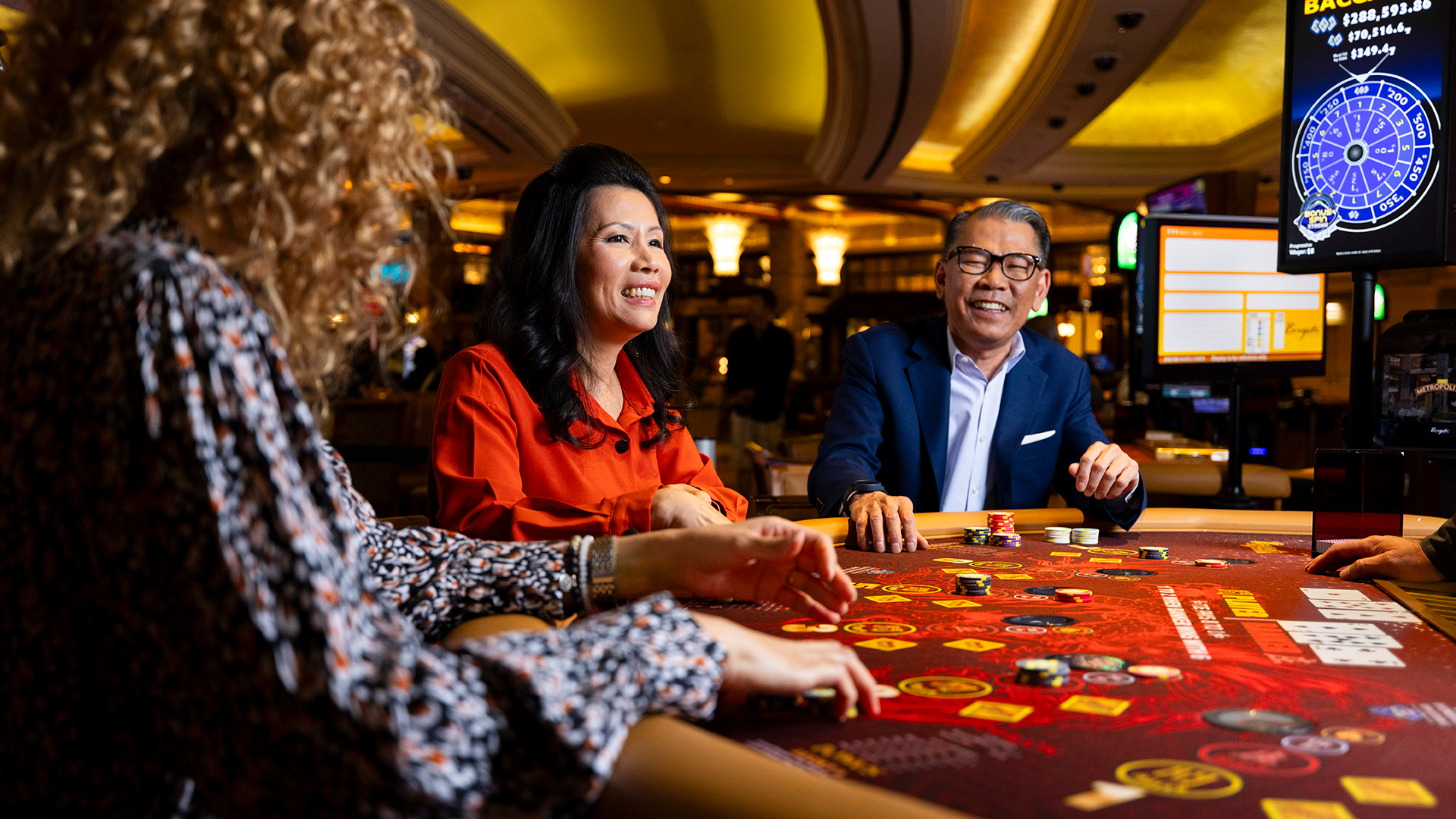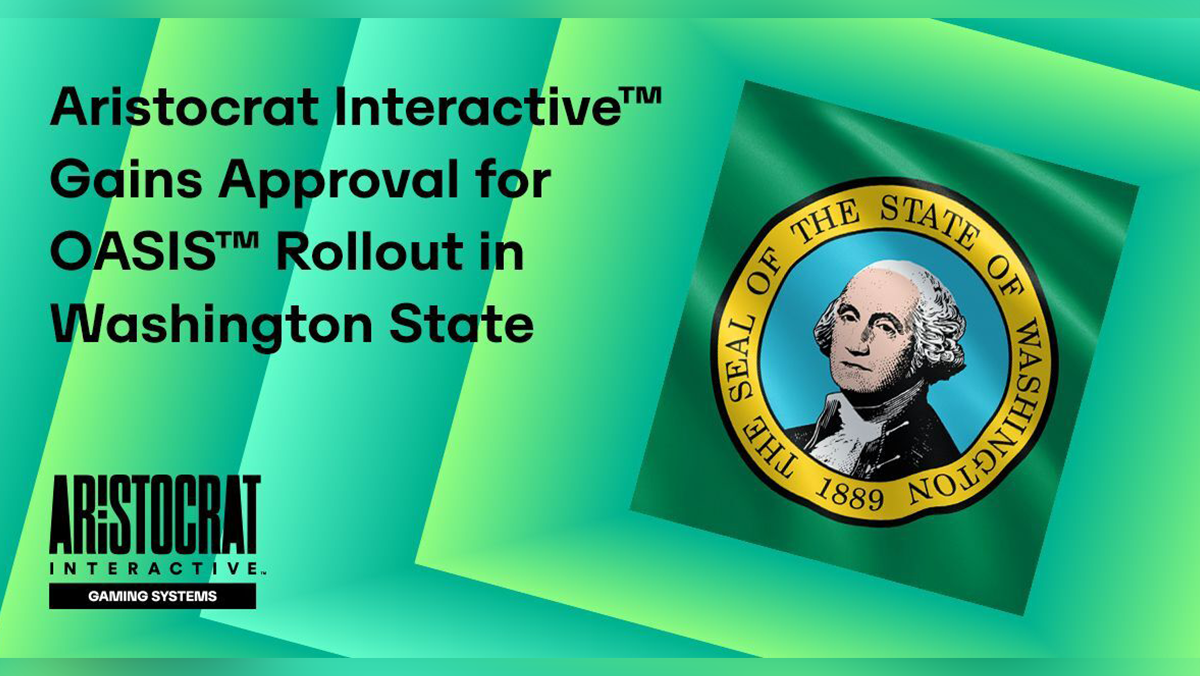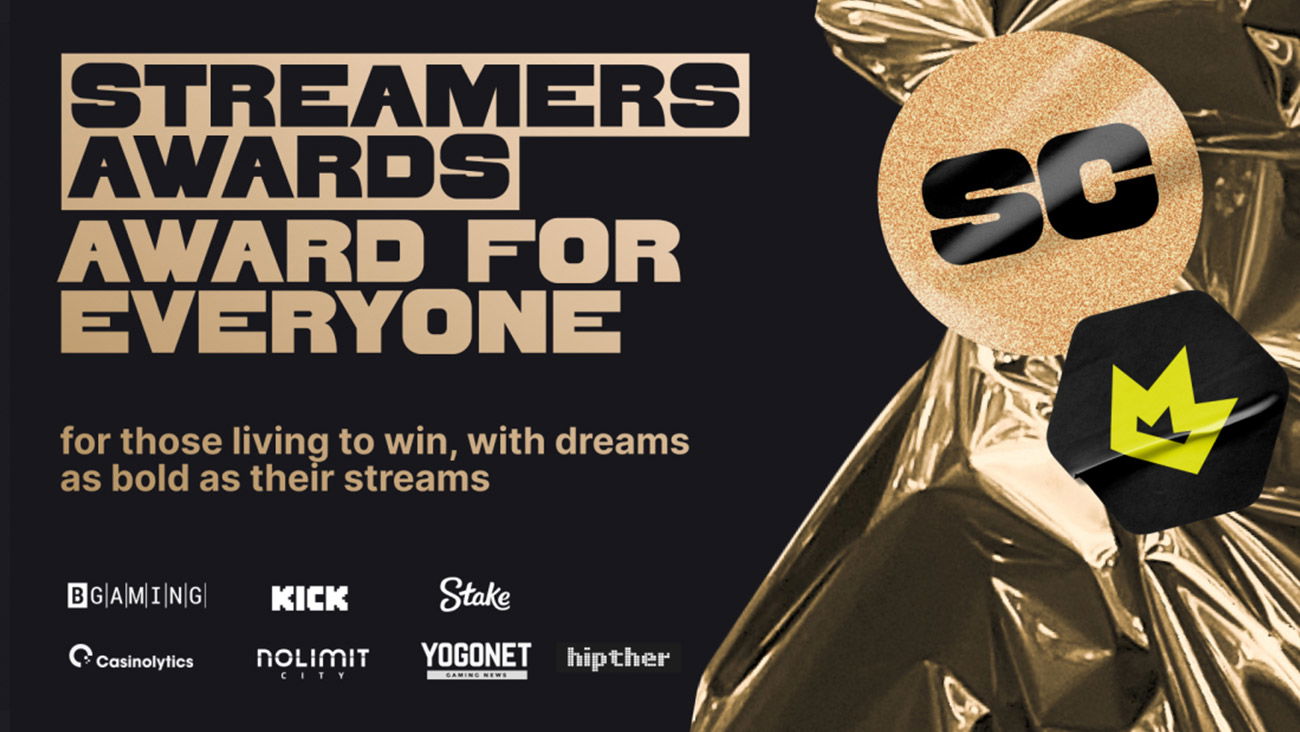“The online gambling industry would have preferred Clinton over Trump”

Most importantly and interestingly, Mr. Pack tries to shed light on how Trump's personal history and policy choices will affect the gambling industry. How should we expect him to roll the dice of sports betting? Why did his Atlantic City casino failures did not seem to matter when voters cast their ballots?
“We knew pretty much exactly what Hillary would do. It is impossible to estimate with any precision how Trump will fight ISIS. Will he work with Russia? Will he work against Russia? By looking at his business record and his time in the gambling industry, we can try to glean insights into his character, business practices, and his world view. His zero-sum mentality, and his penchant for what is frequently called transactional thinking, seem to appeal to the American brick and mortar casino industry while they are opposed by those in the internet gaming and non-American gaming industries”, Mr. Pack explained in an exclusive talk with Yogonet.
How do you analyze Donald Trump's electoral victory and its impact on the gambling industry?
I am an academic, an historian, and a political commentator. I am also the President of Libya-Analysis®, a small consulting company. I have never met Donald Trump but as an American I have witnessed the rising anger against neo-liberal economics and the perceived dominance of politically correct discourse that has led to the explosion of the populist Alt-Right movement. Many people see Donald Trump as only partially representative of this new populist wave. They assume that Trump just says what he thinks the white working class wants to here. I don’t believe that. I know that this is a controversial opinion: but I have many data points which confirm that Donald Trump actually means what he says – when he says “I will build the wall” or he says “We will have a trade war with China.” This flies in the face of the view of much of the Republican establishment: “Oh, he is just saying that because that appeals to people” and he will not govern as a populist.
In late 2015, I started systematically studying his business record. And if you study his business record, you come to realize that he is a zero-sum thinker. As a zero-sum thinker, he has always tried to prevent competition, to ally himself with exclusive, cartelistic industries where he has connections with the regulators.
His father was an important developer of houses and according to David Kay Johnston it was because of his father's political connection to the New Jersey gambling commission that he first got started in the casino industry.
Trump essentially used the real estate connections of his father in NJ to obtain a casino license in Atlantic City in the late 70s, early 80s. His desire to obtain privileged access to favorable sectors or markets explains a lot about how Donald Trump has traditionally operated.
Likewise, he was very willing to try to do business with Qadhafi in Libya in the 2000s because he liked the idea of privileged access to a closed off market. This zero-sum thinking defines the brick and mortar US casino industry of Steve Wynn and Sheldon Adelson, yet it is not the way that the gambling industry thinks in places like England.
Zero sum thinking is the idea that there is a fixed and limited amount of profit or “wins” and that different players in the market are merely competing for this fixed amount of gains.
I have written an opinion piece where I made the contrast between those who oppose and those who embrace internet gambling -- a field which promotes competition, where there are not many barriers to entry and which has some aspects of a normal free market with some positive sum aspects. The small Caribbean islands, particularly Antigua, are promoting their advantages in the free market place of internet gambling. And yes, big players like Betfair and William Hill are trying to move into this domain, but it is not a domain, which lends itself to zero-sum cartel thinking because of the open nature of the Internet. In short, those who oppose and those embrace internet gambling operate under fundamentally different business models.
I see Trump as representing the old school brick and mortar casino establishment which has held on in the US, but has been increasingly challenged and no longer has dominancy in Europe and other places in the world.
This old school brick and mortar casino tradition that Trump embodies must not be very good news for the gambling industry if we take into account, for instance, his record in Atlantic City. Do you agree?
It depends on what part of the casino industry you are talking about. If I was an owner of a brick and mortar casino in the US, I would be rejoicing. There are two things going on here: 1) Trump is not that motivated about legislating on the gambling issue when he has more pressing concerns like the Islamic State and China. 2) The gambling industry and its zero sum American context affect Trump’s mindset in other issues which he cares more about such as immigration or China.
So when I spoke to experts of US gambling policy, they have said the tension within the Republican Party will always persist on the gambling issue.
On the one hand, the religious right opposes gambling as a sin. And you could say Mike Pence represents that wing of the party for this incoming administration. And then there are pragmatic conservatives who in their heart of hearts are social liberals like Trump or Chris Christie. They tend to promote gambling because they don’t want to have to raise income taxes and can use money from taxes on the casino industry to fund their spending.
That tension within the Republican establishment is always going to be there. It is not clear whether Trump’s history in the gambling industry should be seen as good or bad for the global gaming industry moving forward.
I would see Trump as personally wanting to promote the brick and mortar casino industry but then not wanting to offend the religious base on which he now depends. So Trump probably isn’t going to make this a very high priority issue and, therefore, he represents a main stream Republican continuation.
The people that Trump’s election is clearly bad for are the partisans online gambling industry in the US. I am 100 percent sure that those who want fantasy football to expand, and those of us who would like to be able to bet on sport games like you can in Europe, they would have strongly preferred Clinton -- or even better a Libertarian.
There were societal reasons to believe this group might have been on the cusp of achieving its aims. But now the social movement which thinks “Oh, we are going to legalize marijuana, so why don't we legalize gambling” was all of a sudden undercut. It seems to me that if Clinton would have come into office and this led to liberalization of a whole lot of social causes, we might be seeing liberalization on sports betting and online gambling, but now that is not going to happen.
It is not only the fact that the Trump family owned casino operations and still has some legacy ties to the industry. In fact, there has been much speculation that Trump International will return to the casino business.
Much more crucially, his whole mindset of zero-sum, “If you win, I lose” means that he is not able to see the possible benefit to mainstream casino owners of egambling.
I think that egambling goes against everything that he stands for. His opposition to free trade is very similar. There could be a way of framing the trade deals as helpful for industrial workers. But he genuinely thinks that NAFTA has been bad for manufacturing workers and that we need to get rid of it. Competition and open markets are a threat to Trump’s way of doing business.
Even more surprising than Trump’s victory, is that the Republicans maintained both the House and the Senate. These Congressional Republicans are against internet gambling for moral and business reasons. These are not Libertarians. The Libertarian wing of the Republican Party as exemplified by, Rand Paul, is essentially destroyed; Gary Johnson has made a joke of the Libertarian party, so many Libertarian causes other than marijuana are in decline.
So you see no chances at all of liberalizing the market of eSports in the US?
Not while Trump has a Republican House and Senate, and soon a Republican judiciary behind him, no, it is not possible. So all of that has been all of a sudden set back because there is the inadvertent ascendancy of the religious Right, on one hand, and his zero-sum mentality, on the other. I am myself a Libertarian when it comes to gambling. I believe that gambling should be legalized, as the urge to gamble is a fundamental part of human nature.
I am also an authority on the Islamic world; I have lived extensively in Syria and Libya. Officially Muslims there don’t drink, don’t gamble. Officially, Libya is completely dry. But in practice, they do drink and gamble because they are humans like everyone else – so they do it illegally in the black market – and frequently suffer the consequences from poisoned bathtub moonshine to being cheated in unregulated card games.
The idea that you can use the law to completely stop online gambling in the US is of course false.
People find ways to have their friends place bets in England or to use false web servers that make it seem that you are in the Caribbean or something.
Mentioning Britain, how do you analyze what happened in the United Kingdom where Trump’s victory led to major losses for bookies?
I wished I had bet, because I was fairly certain Trump was going to win.
However, I wasn’t the only one that knew that Trump was going to win because there were lots of clues.
The first clue was Brexit. In the polls, it appeared that the Remain side was 5 or 6 points ahead but it turned out that there was a hidden “Leave vote”. People who didn’t want to tell the pollsters “Well, I actually hate living on a street with non-white people”. There is a similarity here with American voters. Some who voted for Trump didn’t want to confess to the pollsters that they are anti-immigrant.
They just said “I’ll vote for Clinton” or even better they said “I don't know”. And the “I don’t know” vote was obviously to me a hidden “Trump vote”. I didn’t bet because I am in the US right now and I won’t bet illegally, but if I would have been in England I think I would have made a big bet, at the moment with the most favorable odds for Trump.
The other thing that was a clear indicator for Trump was when Bernie Sanders won Michigan. Michigan represents the post-industrial working class who believe that they have lost out from the globalized economy. It was very clear that no matter what Bernie said at the convention that these voters would support Trump and not Clinton even though they had voted for Bernie in the primary.
Back to the question regarding the UK bookmakers, it is very important that they have to pay for their losses; there is no way that they can renege. The marketplace is fair in England. The only thing that worries me about political betting would be a situation in which a market would arise in which people would bet, say on Trump, and then they would change their vote or propagate false news so as to win the bet. This is the same difficulty that we have in European football: the fact that the scale of the money involved in football betting so dwarfs the salaries and the whole merchandising of the European football leagues that it creates an easy incentive for match fixing. Therefore, it would be highly worrisome if so much money was placed on political betting in a market like the US, that it could create perverse incentives.
Why do you think voters didn't seem to care about Trump's real business legacy, for instance, in Atlantic City or the closure of the Trump Taj Mahal leaving 3,000 people out of their jobs back in October?
This is a great question. Trump has a unique ability of making his failures look like successes or changing the subject. When he lost lots of money in the 80s and 90s on bad real estate deals he said “Oh, this is a success; I am gonna write off my loss, not pay taxes. That is a gain for me” When he lost AC casinos due to falling revenue and soaring costs, he pretended that somehow this was in his best interest, that he was changing industries or whatever.
So people believe that he is a winner because he tells them that he is a winner. All indications are that the reason why he does not release his taxes is that he is actually not that good of a businessman. People somehow are convinced because he has this way of playing things up with bravado that is so convincing.
I believe that when Trump said “I could shoot someone in 5th Avenue and my supporters would still love me” he was telling us the truth.
There is something unique about this new Alt-right type voter who does not care if he insults women or if he is a business failure. And that is the same probably with the right-wing movement that won in Argentina and it is definitely true about Brexit.
Nigel Farage is an anti-immigrant politician who is married to a German woman. And Trump is married to a Slovenian who was herself probably an illegal immigrant and she worked in the United States as a model without having the correct papers.
This anti-politics of the Alt-right is a very perverse group of people who wish, I think, just to break down the establishment and they don't care about who is doing it and they might think “Well, he is a liar, or he is a kind of a hypocrite. But this is fine as it shows he is not part of the establishment.”
What about the support Trump got from Sheldon Adelson while Jim Murren of MGM publicly endorsed Hillary Clinton? What is the difference there?
The gambling industry and the American Gaming Association (AGA) have not traditionally been attracted to one or the other political party. They are very good in having allies in both the Republican and the Democratic establishments.
They are attracted to both parties for different reasons: Republicans want lower taxes, and hence are attracted to gambling as it can provide income at the state-level, while the Democrats do not invoke religious justifications for policies and hence do not have moral difficulties in promoting gambling.
Adelson has strong ties to the Republican party and he is a casino owner. And therefore it is not surprising that he would support Trump. Moreover, despite not being a neo-con as Adelson is, Trump has that “let's destroy our enemies: the Palestinians, ISIS, etc.” approach to things. I don’t know the foreign policy of the other casino holders but I could see that they understood that Hillary Clinton was the establishment candidate and unlikely to harm their interests for that reason.
The casino magnates did not become a big issue in the election. Casino lobbying was never even mentioned. Hence, voters did not think about it.
When I tried to raise the issue in the press, no one wanted to talk about that because there is a fascinating dynamic in which the casino lobby is not considered important or controversial relative to the other lobbies like the NRA, AIPAC, Big pharma, and Big oil.
But the casino industry has a great bearing on the US economy.
The casino industry is as powerful as any of those other lobbies but your average Joe Six Pack doesn’t know about it. The AGA avoids the limelight.
What about Trump's relationship with Native Americans? He has harshly and famously criticized the Indian administration of casinos in the US.
He understands correctly for the economics of the casino industry that for any given population center there is only so much demand for casino gambling. If near that population center you have your casino, any new casinos in the area will simply suck business away. This zero-sum mentality is applicable because gambling does not add anything to the real economy. It is not like building an iPhone. It does not have a positive-sum aspect so he correctly played the zero-sum game of denying competitors entry to the market place, especially from the Native American community.
What role will the NIGA play now?
Once Native Americans have casinos up and running, it is difficult to take them away because it is enshrined in their tribal sovereignty. I can't imagine that those that already have casinos would suffer at all, but in general Native Americans despise Trump.
Native Americans think Trump represents what is bad about “the racist white man” probably more than any Republican leader ever has. He is clearly the least friendly to Native American issues and perspectives. George W. Bush was not a hater of Native Americans the way that Donald Trump is. I imagine there would be tensions if they have to deal with him personally.
Trump is really feared and loathed outside of white America. He has offended almost everyone who is not white. And he won because we are still a majority white nation.
What is your analysis of the gambling industry in the US? Some experts are seeing a recovery in Las Vegas with Nevada being the hardest-hit state by the financial crisis. Do you agree? Atlantic City does not seem to be recovering and New Jersey has just said “No” to the expansion of casinos to Northern Jersey.
I am from New Jersey and I watched all the horrible ads here against the casino expansion and these were of course paid for by Atlantic City and the current establishment and yet they framed the issue in populist terms. There is a strong dynamic that still fears gambling expansion in the US economy and it has the ability to manipulate opinion. So the zero-sum logic of the current casino industry was very much on display in the NJ casino referendum.
In Nevada, one of the reasons why the industry is doing better now is not only that the US economy is rising, but also because they established themselves as a luxury destination. You have family trips and international clients, like the Chinese and the Russians that go there to sightsee and eat, as well as gamble.
The American gambling industry understands how to make Vegas a destination. As a destination for Russians, Europeans, and the Chinese it is still doing well, and it even has certain advantages over Monte Carlo and London.
Las Vegas is simply bigger and the buildings are more grand and it has glitz: people simply want to go to Las Vegas. That is not going to change. Even if Macau and soon Japan came to dwarf the Vegas Strip in gaming revenue, Vegas will still be a quintessential American tourist attraction and the Trump administration will want to promote that as part of its “Make America Great Again” agenda.
















































